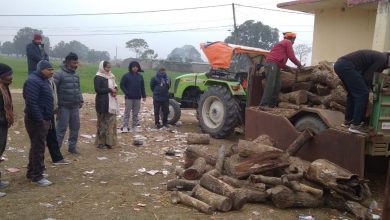Film Review: Girl from Tomorrow — A Sicilian tale of resistance that resonates deeply with Nepal
November 15, Kathmandu: The two-day 14th European Union Film Festival (EUFF) began today, November 15, to the public at Chhaya Centre. This year’s festival features a total of 25 films, including 10 European feature films, 6 BAFTA-nominated shorts, and 9 Nepali short films.
One film from the line-up deserves special attention: Girl from Tomorrow by Marta Savina (Italy).
Set in Sicily, the film captures a cultural and emotional landscape that many Nepalis will unexpectedly recognise. Anyone who has watched The Godfather knows that Sicilian stories, even when wrapped in crime and violence, are fundamentally about resilience—the kind born from generations of hardship, migration, poverty, and resistance. Girl from Tomorrow draws from the same soil, but tells a quieter, more intimate story: a young girl and her family standing up against deeply rooted social norms, religious authority, and the shame imposed on victims.
The narrative follows a teenage girl who survives a sexual assault and a community that expects her to stay silent. She and her family refuse to comply. The most striking line in the film comes during a moment of unbearable tension, when the mother says something to the effect of:
“We feel humiliated because only they are speaking. Once we begin to speak, the humiliation will no longer be ours.” It is one of those lines that transcends cinema; it becomes a commentary on how societies suppress victims by giving power to the perpetrators’ voices.

For Nepali audiences, the parallel is impossible to ignore. Not long ago, our rural power structures carried a “compromise” practice where a raped girl would be pressured—often by political or social elites—to marry her rapist. It was not custom; it was corruption disguised as saving honour and reputation. Today, it is both a taboo and a punishable crime, but the shift happened because survivors and communities slowly began to speak. In that sense, Girl from Tomorrow mirrors our own journey from silence to accountability.
The film also exposes the institutional rot within the local Catholic Church, particularly through a priest who prioritises money, power, reputation and religious hierarchy over truth. This depiction is not simply anti-clerical commentary—it is a reminder of how political and religious power can collude to preserve comfort at the expense of justice. Yet the story insists on hope: one family’s refusal to bow down ultimately triggers a legal precedent in real life, proving that a single act of defiance can disrupt an entire system.
As Nepal stands at a pivotal moment—energised by Gen Z activism demanding integrity, transparency, and civic courage—Girl from Tomorrow becomes more than a European narrative. It becomes a lesson. Change rarely begins in institutions; it begins with ordinary people who decide that silence benefits only the powerful.
EUFF’s decision to bring this film to Kathmandu arrives at the perfect time. As the festival continues with public screenings on 15–16 November in Kathmandu and travels to Pokhara on 22–23 November, Nepali audiences will have the chance to watch a story that feels distant in geography but close in spirit.
Girl from Tomorrow is a beautifully crafted reminder that resilience is not a heroic trait—it is a cultural inheritance. And when ordinary people refuse to surrender to shame or authority, the future shifts.








Comments